Why I Love Living Alone as a Highly Sensitive Person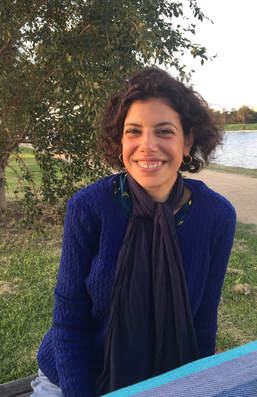
Guest post written by: Helen van Soest of https://myhsp.life/
I have lived in so many shared houses and flats, I have lost count. An amazing feat really, considering I am a highly sensitive person (HSP). I grew up in a stable and strict home and was pretty sheltered. I finally moved out of home at 25 years old and my education about the world really began, especially by living with various strangers over the years. I shared flats and houses with people in Sydney, Melbourne and London. I saw the goodness in people but also unfortunately, the dark side of human nature. In London, I lived with my landlord in a shared house and he decided to bully me as he was lonely and bored. The good thing about being highly sensitive is that you reach a threshold where enough is enough. After months of enduring his erratic behaviour and tendency to control, I finally moved out. When I moved back to Sydney, my home town, after a brief sojourn at my parents’ place, I moved in with an older lady who was overconfident and showed a bit too much interest in my life. I couldn’t afford to live on my own at that time but really needed my privacy, a quiet place to relax and not have to worry about other people. In the end, she got sick and asked me to move out. I was more than happy to — the stress of living with her had taken its toll. Many years later, I moved to Melbourne, fresh out of a relationship. I decided to live with a flatmate again as I thought it would be a good way to make new friends and establish a social life. Unfortunately, I picked the wrong person — she was too tough and sometimes appeared a bit cold. Now and then, she would open up to me and I saw a warmer side to her. Because of the pain she had suffered in her life (a death in the family), she had developed a tough exterior that was hard to penetrate. My bathroom became problematic — there was a mysterious leak and she was not willing to help me. I ended up moving out five months later. I was really upset that someone could be so unhelpful and uncaring. My last shared flat started well but ended badly. My flatmate was nice to me at the beginning but then the performance was over and I saw what was really happening — someone suffering from a serious mental illness, who was not in control of her life. In the end, she chose a guy over me — her on-again, off-again boyfriend wanted to move in. I was not happy with this arrangement, so she said I could leave. I finally found a cute and cosy studio to live in — I got the peace and quiet I was craving and felt at ease. I had to accept that as a HSP, it's impossible to live with someone and not care about them, even when they don’t deserve it. Highly sensitive people have open hearts and often get hurt by other people, which is why alone time and having strong boundaries in relationships really helps. I have tried to move on from the past and learn from it. I have learnt that people need to earn my trust and care — it's hard for me to hold back like this, but sometimes I have to do it for my mental health and wellbeing. Being sensitive in a tough world is not easy. At the end of the day, living alone is the best thing for me. Somewhere to retreat to at the end of a busy working day, to get away from the noise and clutter of everyday life and to breathe in and enjoy silence and peace. Helen is a writer and editor, currently living in Melbourne, Australia. As a HSP, she loves reading and writing articles about this unique personality type and how best to navigate the world! Her website is https://myhsp.life/.
0 Comments
How To Stop Overthinking as a Highly Sensitive Person with Anxiety in the Age of Coronavirus
Overthinking is very common, especially for those very in tune with their feelings, emotions, and the feelings and emotions of those around us. Right now, we are all dealing with the coronavirus pandemic and life is confusing, weird, and scary. I've seen so many articles detailing what could go right and what could go horribly wrong in this day and age of COVID-19. Many of us are stuck at home, with spiraling overthinking thoughts. You're definitely not alone if you've been overthinking everything these days.
However, there are ways to ease overthinking. Here are some of my favorite ways: 1. Write a gratitude list. No matter what is going on in the world, there is always, always something to be grateful for. Even if you are going crazy being stuck inside right now, at least you have a nice house. You have food, things to watch on TV, etc. Whenever you are overthinking or feeling crappy, make a list of all of the people and things you are grateful for. Bonus points if you reach out to someone and tell them why you are grateful for them! You might just cheer them up too. 2. Think more about what could go right. When we overthink, our thoughts tend to always go to worst-case scenario. This in turn gets us feeling cranky and depressed. Instead, start to think about all the ways the situation could turn out in a positive way. Think about all of the good that can come from a bad situation. 3. Re-frame your thoughts. When you start to think about what can go right instead of wrong, you begin to re-frame your thoughts and become more positive. You can even write things down. For example, you might be worried about getting sick. Yes, you might, but there are more chances you'll stay healthy or get sick and recover. If you are taking precaution and social distancing, you are likely to stay healthy and keep others around you healthy too. 4. Distract yourself in a positive way. If you can't stop overthinking bad thoughts, distract your brain! Watch funny videos on YouTube (or check out my channel), watch something positive on television, play a game, do Sudoku, play with your pets, call a friend, paint your nails, or do ANYTHING that will get you out of your current headspace. Sometimes a little distraction is all you need to feel better and stop overthinking everything. 5. Talk it out with a trusted support system. If you have a therapist, talk to them. Or you can talk to your best friend, significant other, mom or dad, etc. They can likely help you to stop overthinking, start thinking of solutions, or simply be a good distraction. In addition, you could also think about what you would say if someone came to you with your overthinking thoughts. If your best friend was overthinking the same thing, you would likely say something positive to them or tell them they are being ridiculous. Say the same things to yourself. If you need a little help with anxiety and overwhelm, both of my courses are only $10 each right now too! Click the links below for more information. Stay healthy and safe out there and try to stay positive. This too shall pass! xo Lauren How Spiritual Awakening Can Life Your Anxiety and Depression as a HSP
Guest post by Chris
Disclaimer: As always, please speak to your doctor or a trained professional if you are dealing with depression, anxiety, and/or grief. If we try to observe nature and its course, we will see how things ebb and flow. Like the sun that rises each morning, it will eventually set and prepare to rise again tomorrow. Just as the water that falls down the stream, it becomes part of the ocean and is then turned into rain. This natural phenomenon of ebbing and flowing is how nature exists. Through creation and destruction, a natural order of things ensues. With that, a cycle is born, just as an existence in one place from one can traverse to the other. But what happens when we are stuck at one point? More often than not, since people have the intellectual and emotional capacity to dictate things in their life, they can also be stuck in this natural flow. Unlike the deer that doesn’t have the capacity to endlessly grieve at the death of her fawn, man is cursed with such consciousness and power to do so. By having that capacity, we as humans can choose to be stuck at one point in our lives, even if such is not the proper way to go. The death of someone we truly hold dear can easily derail us, as we dwell in such negative feelings. Before we know it, we are already manifesting signs of depression and anxiety as such slowly creeps in our system. Furthermore, such diseases can be more complicated than we think. On the one hand, we may not know it ourselves, but we may actually be suffering from one right now. On the other hand, people around us may not acknowledge such struggles, often dismissing it, leading us to be further buried in such. With that, what does spiritual awakening contribute to helping lift your depression and anxiety? First and foremost, spiritual awakening involves a critical inquiry into life's deepest secrets. As one of its forms, asking questions about the meaning of life, life after death, the presence of universal unity, and even cosmic energy, can lead us to higher plains. Traversing this path means that we are outright yearning for more, beyond the mundane concerns of the modern man. By asking our life’s purpose, we open up ourselves to things and questions that are naturally bigger than us. This leads us to inch forward and progress as we take ourselves to a new level. Even at the beginning of spiritual awakening, it already shows signs that it can be one of the ways to alleviate your depression and anxieties in life. As these questions about life itself will inevitably be raised in the process, we realize that maybe we are looking at the wrong answers and events instead of asking the right questions. Just like travelers who are lost, focusing on the fact that you are in the middle of nowhere can only lead you to be further buried in your failure. But great adventurers, even when lost, can find their way back given that they constantly ask themselves and others the right questions in life. Similarly, you should ask yourself: am I lost simply because I failed to ask the right questions? Second, spiritual awakening is a process that involves a shift in perspective. Just as we open ourselves to the divine, the way we view life will also change. Instead of placing too much value on earthly things and worldly concerns, our improved outlook will see value and happiness from another angle. When we begin realizing that we should not be trapped in the finitudes of our contingent existence, we understand that other things can be far more critical than our inner struggles. By seeing that the world has far more problems to deal with, we can volunteer ourselves to something higher and more significant than us. In doing such, we allow ourselves to become part of something more simply because we realize that indeed, there is something more than us. As a natural consequence, uncertainties and insecurities will be brushed-off for they are often stemming from one’s lack of inner belief on something or someone. Through spiritual awakening, we can widen our perspective. Such can possibly lead us to slowly deal away with our problems, making our feelings of depression and anxiety less agonizing. Third, spiritual awakening is the gateway to cosmic energy. As we open ourselves to the divine, we allow it to not only change the way we see things. More importantly, opening to the divine can lead us to be conquered by it, as its energy flows in us. Similar to all forms of spirituality, the common concept is this – to be healed and to achieve the best version of ourselves, we must see our existence as part of the greater scheme of things. Regardless of the method, you select (chakra healing, crystal healing, Ayurveda, the law of attraction, etc.,) what unites these forms of spirituality is the idea that the power of the universe becomes accessible from within. And when we are able to successfully do that, the presence of negativity in our lives will significantly decrease. As a consequence, feelings of depression, anxiety, insecurity, and uncertainty will matter less for us. By having something to hinge upon, life becomes more meaningful. With that, spiritual awakening is truly a gift for us to improve who we are. By allowing ourselves to flow through it like water in a river stream, we restore the natural balance of ebbing and flowing. As such, although we will still experience negativity and uncertainty, we’ll realize that such things are only temporary, for we are never truly trapped in the situation we are in. Author Biography: Chris is a spirituality and meditation enthusiast who writes for individualogist.com, a personality-testing resource based on Carl Jung’s study of the 12 Jungian archetypes. He is a firm believer of using self-discovery as a tool for uncovering one’s purpose and direction. Individualogist has guided thousands of its active members to achieve transformations and experience success in various aspects of their lives. Website: https://individualogist.com Facebook: https://facebook.com/individualogist Instagram: https://instagram.com/individualogistig Changing vs. Aligning as a HSP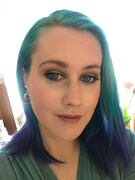
Written by: Lauren Littlewood
Changing is what happens when a person or thing becomes something else. If a person changes it could be something they wanted because they did not like something about themselves or maybe someone else wants them to be different in some way. We change to make others happy. We change to be more accepted in society or our community. Change, in and of itself, is not always true and honest. Change can happen from a true and honest source but oftentimes are built out of obligation or dissatisfaction. Alignment, however, is a readjustment to what feels authentic to you. Aligning with your authentic self, needs, and desires is difficult. In a world where everything is, think, think, think, we often don’t feel. And if we do feel it usually is accompanied by thinking such as, should I feel this way… As if the mind is trying to control or create bumpers for your emotions. Through alignment comes change, but not for the sake of change. Alignment changes you to your truthful and authentic self. Initially, it is difficult and confusing. The mind interjects a lot and overall it can be frustrating. When you hear the voice of your inner true speak it will be quiet, like a whisper. You may question it at first. You may have already experienced your inner voice. Like that time, you knew you should have gone for one thing but went for another instead then later thought, “I knew I should have picked the other one.” Our inner truth knows what is right for us. It is our sixth sense of knowing what is the right choice for us. And the first thing you have to do is tune in. Get quiet. Maybe journal all your thoughts beforehand so they are out and you can have a quiet inner space. Ask the question and listen. When changing your decision making to this method you will start to see a change. It may be messy at first. Filled with judgment for those closest to you, because you are not acting or doing all the things they expect from you. But with time and consistency, you will see that this is the only way to live. The change will be a re-alignment to your most true self and life. The more connected you are the better everything in life will be. Lauren's Bio: As a child I was a very sensitive person and very empathetic towards everyone and everything. This is probably why I because a vegan, a therapist, a yoga instructor and a health coach. Through my life I have struggled with rage issues, anxiety issues and depression. I have learned many techniques to overcome these issues which I love to share with others. If we are not lifting each other up, then what are we here for? How to Travel to Bali as a Highly Sensitive Person
Written by: Sina Imbacher @thehighlysensitivetraveler
The sound of accelerating and hooting scooters is ringing in my ears. I can smell the traffic smoke and fried goodies from street food stalls. My eyes rush from one side to the other, trying to see everything, even though I only get glimpses of people, dogs and buildings which we are passing. My driver takes a sudden left turn into a narrow street which can only just fit two scooters next to each other. I hold on tighter, pressing my thighs together, while we ride a bumpy road, a short cut as it seems. Suddenly some rice fields pop up next to me. I quickly turn my head to admire the bright green scenery and nearly give my driver a knock-out with my helmet. "Oh my god", whispers an excited voice in my head, "you are sitting on the back of some random Balinese guy's scooter, he drives like a maniac, which they all do, on the way to the beach, through crazy traffic, next to rice fields and street dogs!" I can't help myself but grin like a weirdo. This is such a different world to what I am used to. Welcome to crazy Bali! I was 20 when I went on my first trip to South-East Asia. It was a rather sobering experience, to be honest. Everyone who has been to this part of the world was thrilled, telling me it was "a.m.a.z.i.n.g." And then I came back from my holidays thinking "well that was not as pleasant as I was expecting." This was before I knew I was highly sensitive. This first trip, to Thailand, was just purely overwhelming for me. I didn't know how to deal with all the new and loud sensations. It had been a rather exhausting experience. Why couldn't I be all easy-going with the noise and the traffic and the smell and the crowds? Was there something wrong with me? Nothing is wrong with me and nothing is wrong with you. Dealing with high sensitivity in our regular environment can even sometimes be a struggle. Travelling across half the globe is a whole different story. But believe me, it is one of the most rewarding experiences! Today I am a full-time traveller, exploring the world as a highly sensitive person. After my not-so-pleasant Thailand trip, I gave South-East-Asia another chance, this time Bali in Indonesia. And I fell in love with this place, even though it is still crazy for me. I have learned how to deal with my superpower and I want to share with you some tips on how to travel Bali as an HSP and have an "a.m.a.z.i.n.g." time! One thing I want to mention before we dive in is, that Bali can be overwhelming. There is a lot of noise, traffic, many people and it can be quite chaotic. As we cannot (and don't want to) change this specific Balinese way of life, we have to learn how to deal with it. Hopefully, these tips might turn out to be helpful for you. 1. Slow Travel vs. FOMO Maybe you can relate to how I feel when I plan a trip to a new place: I want to see and do everything. I wish I would not need to sleep at all and I had an unlimited amount of money. The well-known fear of missing out (FOMO). But guess what, if you try to squeeze every single highlight plus friend's recommendations in one itinerary you will feel stressed and in need of another holiday from the holiday. Slow Travel is the key. It means to skip a few things to enjoy the others more. Don’t underestimate the consequences of a full schedule every day. You will be in an unusual environment full of sensations which can be a lot already. You don't need the extra stress. Be in the moment and take your time. You will feel more relaxed. 2. Choice of Accommodation As a backpacker or solo-traveller one often gets recommend to stay in hostels, to meet people, to not feel alone and so on. So, I stayed in many hostels for a while, but to be honest - these dorms can be tiring eventually. Noise in the middle of the night and the lack of privacy can be annoying. So, if you are very sensitive to noise, have light sleep and value privacy, consider to spend a few more dollars and book a private room for yourself or only share it with a good friend/partner. Last time I was in Bali as a solo-traveller, I booked myself a private room and was so much happier. After a day full of exciting activities, I just wanted to spend a quiet night and recharge. If you travel as a group you can also book inexpensive villas just for you guys! Check out Airbnb. 3. Which part of Bali to stay Tourism has grown in Bali over the last few years. Some parts are more crowded (therefore crazier) than others. I can recommend the following:
4. How to get around There seems to be only one rule (more or less followed) in Balinese traffic: they drive on the left. The quickest and most popular way to get around is by scooter. You can also order a Balinese driver to pick you up. (App tips: "Grab" and "GoJek").
5. Activities for HSPs Yoga is very popular in Bali, you can practice it everywhere (especially in Ubud). Yoga is great to calm down and connect with your body if you feel overwhelmed. Bali is also a paradise for surfers of all levels. Take a lesson and laugh when you fall off your board again and again. As a highly sensitive person, I really enjoy sports where I am close to nature, it gives me a feeling of grounding. You can also do martial arts there if boxing is a catalyst for you to let go of stress and negative feelings (my best friend is an HSP too and she loves it!) If you want to do a guided trip, consider hiring a guide just for yourself. You can ask for a special itinerary and avoid big touristy groups. 6. What to bring My main tip is to bring less, but your faves. Only lightweight stuff and your favourite comfortable clothes which suit the hot weather in Bali. For a literal scent of home, you could spray the perfume of a beloved person on your pyjama/pillow or use essential oils, which can help you to relax and recharge. Also, noise-cancelling headphones and earplugs could be helpful. Consider bringing a little journal for brain dump (write everything down when you feel overwhelmed). This helps to let go and to practise distancing yourself a little bit from all the feelings that come up and it keeps travel memories. Environmentally friendly tip: Bali suffers from extreme amounts of plastic waste. Bring your own drinking bottle and a water filter to save plastic. 7. What to do when feeling overwhelmed Sometimes the whole experience can be just too much. You experience so many things and it's just not home. My most important advice of all is to take time and allow yourself to tune out every once in a while. Focus on your breathing when you feel anxious, practise daily meditation to turn inwards and check how you feel. Be kind to yourself and don't force you to do all the things. In Bali they also have delivery service, so you can order your dinner if you don't feel like going out anymore. 8. Embrace being highly sensitive This is your superpower and it gives you the ability to experience everything in a genuine way! Use all your senses! Try all the food! Experiences new cultures with empathy! Enjoy yourself! Travelling makes your life better :) Sina was 15 years old when she created her own travel blog about her trip to India. The travel bug caught her. At 23 she left home and started travelling full-time, doing short-term jobs on the way to afford her travels. Not long ago she identified with being HSP, after criticising and doubting herself for many years, she is finally learning to embrace this superpower. Follow her adventures on Instagram @thehighlysensitivetraveler 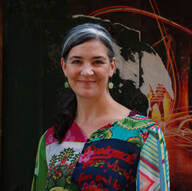
Written by: Amy Cerny Vasterling
My daughter was 6 years old when she came home from half-day kindergarten and looked at me and said, “Mom, I’m overwhelmed.” I had many choices with what to do next. I stood there and paused, as a true introvert does. Then I looked at her and asked her what she felt would help. This is when I could see her pain, I could see distress written all over her face like Charlie Brown in the cartoons where the rounded lines are drawn on the outside of his eyes to emphasize his distress. It is important to realize as introverts we tend to stop in place of rolling over the child and consider their situation. Parents also tend to “fix or solve” their child’s situation when they are struggling. However, with an introverted child what I’ve found is they “already know” what to do, the problem is they need help creating space from the feeling to know how to resolve it themselves. I then reached for a skill I learned from Love and Logic, a parenting model I feel keeps the child’s full power throughout their childhood right into adulthood. I acted as her advocate stating, “Some kids might sit and draw, some kids might read books in their room alone with the door open or closed and some kids might sit in the yard and just be. I knew which one she’d choose and popped it in there because I know her. You can do the same with your child by choosing three things they might choose or one thing that is a sure thing. She got a spark in her eye and looked at me and said, “I’ll go read.” Then I looked at her and said, “Your brother and I are going to make lunch. We’ll eat when we’re ready and if you’re not there by the time we’ve finished I’ll leave your lunch for you in the fridge for whenever you’re ready. This is another key element is introverted kids need the space to process for as long as they need. If we as parents create space through respect like is in this example, it often helps kids respond and release the overwhelm more quickly because kids are already more resilient than adults. 10 minutes later she joined us at the table to eat her lunch and was her spunky self once again. Its important parents are expectation-free in the situation. I could have said, go read until lunch and expected my daughter to join us but in hindsight, I choose what I saw as the right approach putting the control in her hands. This has paid off more times than you can imagine and even worked with kids I barely know. If you put it on their terms what transpires might just surprise you. Let’s face it adults often come home from work and need time to decompress, in the case of my daughter, a social introvert nothing changes. If there is too much stimulation they need time to process it and decompress. If they can learn as young ones through the parent setting up trial and error examples like the one above, I believe they'll manage how to consider themselves in each situation and you’ll raise a child who very well knows when to say yes to something and when to say no. This might just include all the way to knowing if a job is right for them or feels wrong. This child I’ve written about is now 17 and has written and published hundreds of pages, runs a writing club at her school, holds a good part-time job while managing a heavy class-load. She doesn’t sweat the small stuff and doesn’t do what I call “Jumping Through Hoops” which I attribute to the cause of the exceptionally high levels of anxiety in our children these days. While who knows where she’s headed on her journey, she’s learned to manage her energy, rising amply to occasions in a delightful way when she needs to and takes very good care of her energy too. To all parents of an introvert, sensitive, intuitive child, I understand, I am also this child, an INFJ just like my daughter, with a very odd mix of ability to public speak and then hide away and write, coach and teach. Amy has been referred to as the magic parent. She is a catalyst that creates strong relationships in place of the many small actions that break them down teaching parents to trust themselves and in turn support their cognizant (introverted, intuitive, sensitive) children most fully. To Learn More Visit: http://www.intuitivepathfinder.com/parenting for questions about parenting your HPS children visit: http://www.intuitivepathfinder.com/amy-answers-questions 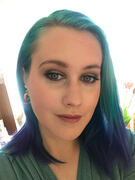
Written by: Lauren Littlewood
Feeling your way through anxiety can feel like solving a puzzle while in a tornado. Pieces fly everywhere, you are concerned about being hit in the head by a random cow, and all the while you are trying to figure out which way is up. At least that is how I felt. My life was a mess. I felt lost, confused and emotional. I was in a loveless marriage, hated the company I was working for and being a highly sensitive and emotionally connected person working in health care with sick and sometimes dying patients can be… horrible. I would find myself looking for an escape every night and still was left with a feeling of hopelessness, heartbreak, and uncertainty. When you are experiencing a storm of emotions, we can sometimes get lost. We try to control it, hide from it and we get lost in it. We sometimes spin out of control with the thought of self-doubt, victimizing ourselves or we replay the pain like a video loop in our brains. If you are in a forest and a storm started, what would you do? Lightning is striking; rain is pouring and trees are swaying. Many people freak out. They run around like crazy trying to find a place to hide, screaming, crying, feeling like they have no control and are in a state of terror. Or you could walk over to that cave over there and sit and watch the chaos until it passes. Which sounds like a more pleasant afternoon to you? Our emotions are the same way. You have a choice but we often pick the most traveled road or the most familiar path out of habit. But if you always do what you have always done, you are always going to get what you always got. When we are having an emotional storm, we can spin out of control in it or we can go sit on the side and watch those feelings. Watching your feelings is odd initially. We feel like we should be engaging or avoiding our emotions. Instead, we give our feelings space to be exactly what they are. We don’t push them to be anything they are not and we don’t avoid them like the plague. In a sense, we are taking the mind out of the equation. Which can be a struggle all on its own. Our mind is always racing and has something to say about everything but if we can get the mind to pull back and listen and connect to what the heart is expressing, we can reach a point of understanding and clarity. Many issues we struggle with such as depression, anger, and anxiety are symptoms of a disconnect. We disconnect from our hearts and emotions to function or to avoid discomfort but no matter what we do, it never gives us resolution. The heart just wants to be heard and the emotions need to be felt. The discomfort comes out in one way or another. The starting point to learning how to witness the weather is to stop and take a breath… or a few just to calm your breathing and your heart rate. Ask yourself what you are feeling and label the emotions. Do not go into a mental rant on all the whys and whats of the feeling. A simple “I feel scared” will do for now. After you have labeled your feelings ask yourself “Why are you scared?” For which you reply in the most straightforward and concise way. “I feel scared that I am not going to find a job I love and will become a bitter or heartless person to cope.” To which you reply, “What can you do today to change how you feel?” “I could find something that makes me happy. A new job or a side job and maybe do some volunteer work that fulfills me for now.” By breaking things down we free ourselves from the feelings of overwhelm thereby calming down that tornado to maybe a little dust devil or the hurricane-like storm to a simple thunderstorm. With this method, we can learn to accept what we cannot change. In this example, we cannot just up and quit the miserable job today because we need to eat. But we can change what we cannot accept. Which is that we need to be happy and feel fulfilled. So how can we achieve that while also working towards a greater change? The plan gives us hope where we otherwise felt hopeless. The witnessing or giving your emotions the floor allows us to acknowledge our feelings and process them appropriately. Thereby, dealing with the anxiety crisis. So, step back and witness the weather, feel the emotions, process them and repeat as needed. Lauren's Bio: As a child I was a very sensitive person and very empathetic towards everyone and everything. This is probably why I because a vegan, a therapist, a yoga instructor and a health coach. Through my life I have struggled with rage issues, anxiety issues and depression. I have learned many techniques to overcome these issues which I love to share with others. If we are not lifting each other up, then what are we here for? 
Written by: Lauren Littlewood
I remember very little from college biology. The one thing I took away from it was that water is amazing! It is literally why we exist on this planet. It is why it was so epic when scientists found liquid on Mars. Water can change forms, go through rock, tear down a building, and yet it can create life. What can water teach us about ourselves? In society, we are taught to fit into boxes, follow specific paths, act and accept life in a particular way. Many of us live in Groundhog’s Day. Living the same day over and over again. Never really having many goals and living without passion. Many of us are depressed, have to take medications to calm our anxieties and have become stagnant in our lives. There is a reason you are not supposed to drink water that has been stagnant for a long period of time. Stagnant water harbors bacteria and probably many more horrible things in it that when consumed can poison its thirsty victim and potentially cost them their life. So, what happens to us when we become stagnant? We become bitter, angry, anxious, depressed, and develop other emotional bacteria that poisons our life. See where I am going with this? What does healthy water look like? Think about the most beautiful body of water, perhaps a beach or waterfall. What do these bodies have in common? They move! Any happy and healthy body of water has a system of movements. It cleanses all the bad stuff and has many things like rocks and minerals to feed it goodness, making it safe to consume. So, like happy and healthy water we must move, both physically and emotionally. If we don’t have a challenge, we become stagnant and unhappy. If things become easy and boring you need to create challenges. Get uncomfortable. If you feel cold and flat in your career or in any life circumstances, then shake things up. Do something that makes you uncomfortable. Switch jobs, do something you have always wanted to do, or learn to play the drums. It doesn’t have to be huge but it should take some convincing to do. It should give you butterflies, and maybe make you nervous. When water meets a great challenge, like a boulder blocking the river, it finds a way to continue on its path. Yes, it clogs things up for a minute but it goes over, under, around or through its blockage. When meeting great challenges, be like water and find a way. Whether the challenge is something painful like a traumatic event or something stopping your momentum towards your dream, you must persist. You can overcome. So be like water... move, challenge, and overcome. After all, you are 70% water so it is already in you, you just have to tap into your tsunami-like power. Lauren's Bio: As a child I was a very sensitive person and very empathetic towards everyone and everything. This is probably why I because a vegan, a therapist, a yoga instructor and a health coach. Through my life I have struggled with rage issues, anxiety issues and depression. I have learned many techniques to overcome these issues which I love to share with others. If we are not lifting each other up, then what are we here for? 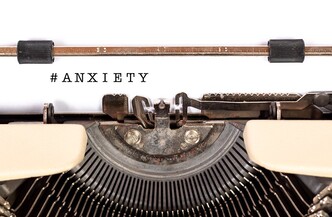
Written by: H.K.
Trigger warning: Discusses eating habits and anxiety... read with caution if you are triggered by these things. It all started 20 years ago. I was just a 6-year-old girl when I experienced the first symptoms of the darkness within me. Maybe it happened before, but I do not remember. When I started pre-school, it was a nightmare. Some would say that making friends or studying are the only problems that a child may face in school, but there is more, and believe me - it is a lot harder. I had an eating problem. In fact, I got so excited at school, so I was not able to eat in front of other kids. I felt sick, and there were times I had to throw up. Another big problem was the school trips. My parents sent me on those trips even though I was afraid of going because I always felt nauseated, especially in the morning. My real fear was “what if I vomit in front of other kids?” Other days I was fine. And, of course, I hated birthdays because when you are at a birthday party you are sort of supposed to eat at least the cake. However, my family was not aware of my mental health. Back then, in my country, mental health awareness was very low. The doctors said that I just had a nervous stomach, and that was all. I never had real medical help. My problems vanished when I was about 13-years-old, i.e. when I got my first period. I do not know if that had something to do with it. Maybe the hormones made a change. Suddenly, I felt much better and I never had a problem to go somewhere or eat in front of people. Those were the best years of my life. I was traveling, going on trips, hanging out with friends, going to birthday parties, and when I was a teenager, I used to go out a lot - I loved it. Just like Cinderella’s magical dress disappeared, so did my freedom. A month before I turned 18, I fell in love with a boy. One night I was at his house. He offered me pancakes, and that was the first time I felt as if I am going to throw up. I hated that feeling. It was back. My darkness was back. I had no idea that my darkness had a name. Anyway, I did not pay much attention to it. But life happens. As a teenager of 18, I wanted to look good and have a nice body. My mother said to me that I was getting very fat (I wasn’t, I was normal), but I believed that, so I started being very careful about what I eat. As time went by, I lost some weight, then some more weight… And, then, my parents were going through a very bad time, simultaneously I was having problems with my boyfriend. I was so much in love that it hurt. As I was losing weight, I was losing my self-esteem as well. I weighed only 47 kilograms (~103 pounds), and I am 165 cm (~5’5”) high. I looked like I was sick of some deadly disease. People started talking about how I look in front of me and even behind my back, which made things worse. So, the real hell began when I was 18 because I did not feel sick only when going on public places, but even when thinking of going out. I was not able to even go to the market without feeling like my throat is closing and I am going to throw up or faint. My sleep schedule was a total disaster. I could not eat. I could not function. Often, I experienced sleep paralysis, and the first time, I thought it was some supernatural creature torturing me. My nightmare continued during my days at college. It affected my class attendance, my grades, my failed exams. I was not able to study and to be honest, I did not have the wish. Nobody understood me. I felt like I was the only girl in the world dealing with such feelings. Thanks to the Internet, I learned that there are thousands of other people who deal with the same issues. I even found out that I am dealing with a mental condition called anxiety. When my mother saw that I am not okay, she sent me to therapy. Sadly, I was able to go to therapy and talk with a psychologist only 5 times because it was too expensive and we could not afford it. Nonetheless, I learned a few things, one of which was to learn how to say no. My therapist taught me that it is very important to love myself, and if there is something that I do not want to do, I must learn how to say no. So, after 3 years of constant work on myself, I felt better. I gained weight, I started doing stuff I could not before. How I Eased my Anxiety with the Help of a Therapist I started my recovery by refusing to do things that made me feel uncomfortable. Of course, I was careful not to hurt people I care about because I believe that having anxiety is not an excuse to be a b*tch all the time. I was aware that not eating enough food was making all the symptoms worse. Also, I learned that magnesium is an important chemical element for the human brain, so I started taking supplements. I promised myself that I am going to eat food regularly (three main meals, and two or three snacks in-between). It was hard, especially in the morning. I woke up every day feeling nauseated. Interestingly, I found a way to feel better! Pumpkin seeds saved me! They are tasteless and they contain magnesium and proteins. So, in the mornings, I ate pumpkin seeds to fill my belly and stop the nausea, and after 30 minutes I was able to grab a bite. After a while, I started eating almonds or nuts, and it was even better. You need to know that food is VERY IMPORTANT! I had moments when I could not eat more than a small piece of bread or meat, but still, it was something. It took me time, but it was worth it. If you are dealing with the same problems, make sure to eat 5-6 meals per day and never ever go to bed on an empty stomach! Besides the food, believe it or not, I used my subconscious mind. Have you heard about positive affirmations? Well, you think of a few phrases, and repeat them each night before bed, and whenever you feel the need to do it. For example, you can say to yourself “I am strong. I can do it. I am in control. I will succeed!” This method helped me achieve a lot. I started going to walks, markets, malls. It was hard, but I did not force myself. I began by going to a market just to buy the thing I need. Now, I love shopping. If you are dealing with this issue, I advise you to focus on the thing you are buying. Observe it, read it, feel it. Whenever you feel that annoying feeling, find something that will occupy your mind. It works. Having a hobby is very important too. I focused on watching TV shows, movies, drawing, coloring, and reading. You know what people say, busy hands – happy mind. Whenever you feel like you are drowning, let it go. If you want to cry – cry. If you want to yell – grab a pillow and yell. Just do not give up. I know it feels bad, but trust me, you can do it! Make sure to find a person who will be there to listen to you when you have to talk. But keep in mind that people who have never experienced anxiety have no idea how it feels and may find it difficult to understand. However, the real people in your life will find a place in their hearts to be there for you and support you through your way to success. Never expect people to heal you, YOU are the only person in the world who is able to help you. Remember that and accept it. Today, 6 years after I learned that I need to take care of myself, I still struggle, but I can proudly say that I am much better than I was back then. Now, I only have anxiety symptoms when there are some big life changes or when I have to go to events that include a lot of people, like weddings, concerts, etc. The good thing is, I somehow manage to attend (most of the time). My advice to all the people around the world dealing with anxiety is “Accept yourself the way you are. Learn how to say NO. Go to therapy. Give time to yourself. Never stop working on yourself. Learn how to love yourself. Remember: You are much stronger than you think! Never let the dark monster within you eat your soul.”
Even when I was a kid, I was always drawn to journals, notebooks, and planners. I love to write... obviously that is what led me to my current career as a freelance writer! After I published my first book, I wanted to also create some journals and planners.
I started with a daily planner and journal, so I could plan my day and also make sure I stayed positive and motivated. It is really helpful for highly sensitive people to write out their feelings and plan their day to feel less overwhelmed. There are no dates, so you can start and write in it any day you want! There are enough pages for over a year. Click here to buy - It is now only $19.99 on Amazon! Then, I realized that an anxiety workbook/journal would be really helpful. It could be something you use every day, or just when you feel anxious. There are lots of different questions that can help you uncover why you are truly anxious, so you can feel better faster. Click here to buy - It is now only $9.99 on Amazon! You get a sneak peek of the inside of both journals on Amazon, so you can truly see what you're getting before you order it. I hope you enjoy them! They also make great gifts for the planner/journal obsessed friend in your life. :) |
Highly Sensitive Person BlogAuthorLauren Archives
January 2022
|
Photo from trendingtopics
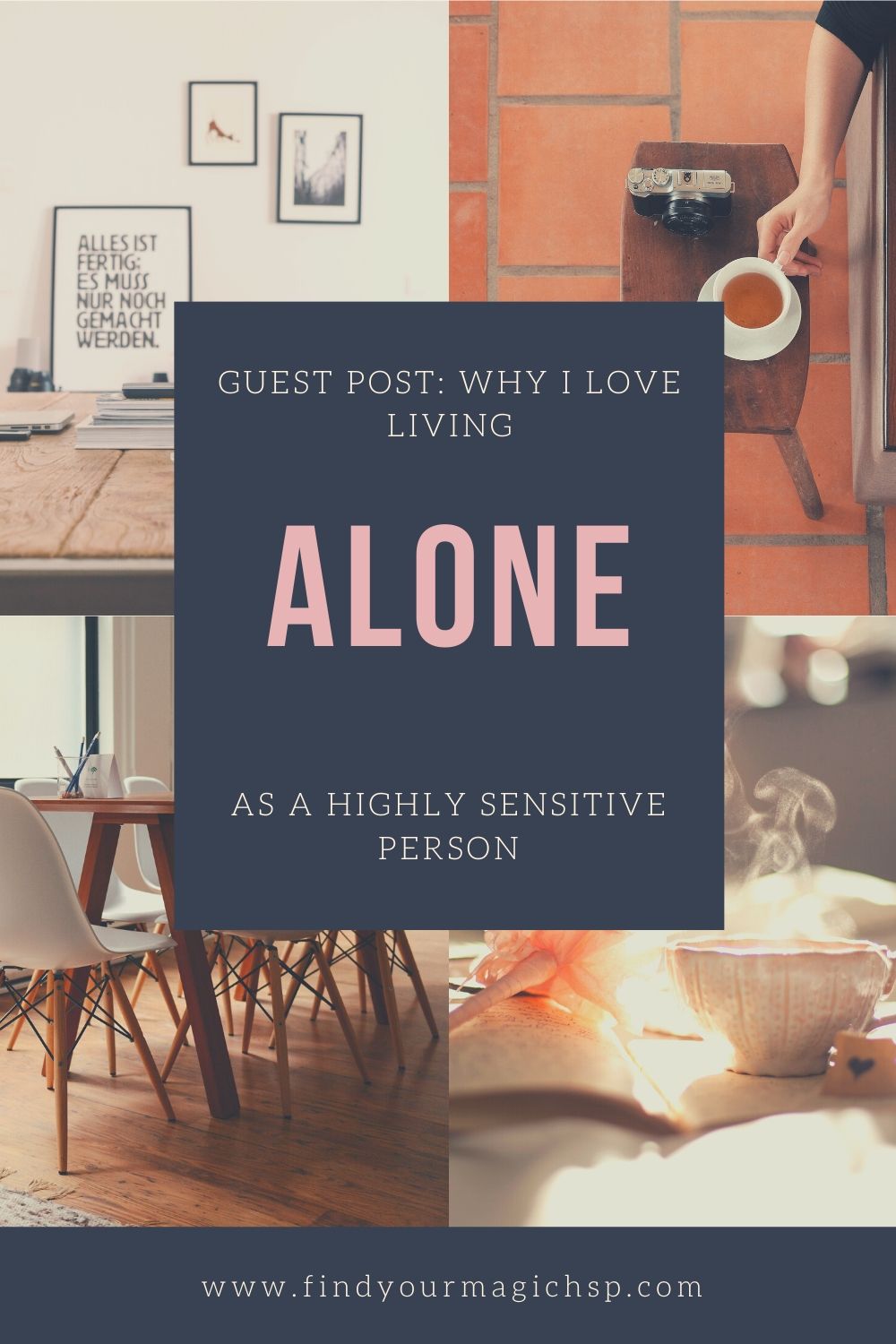
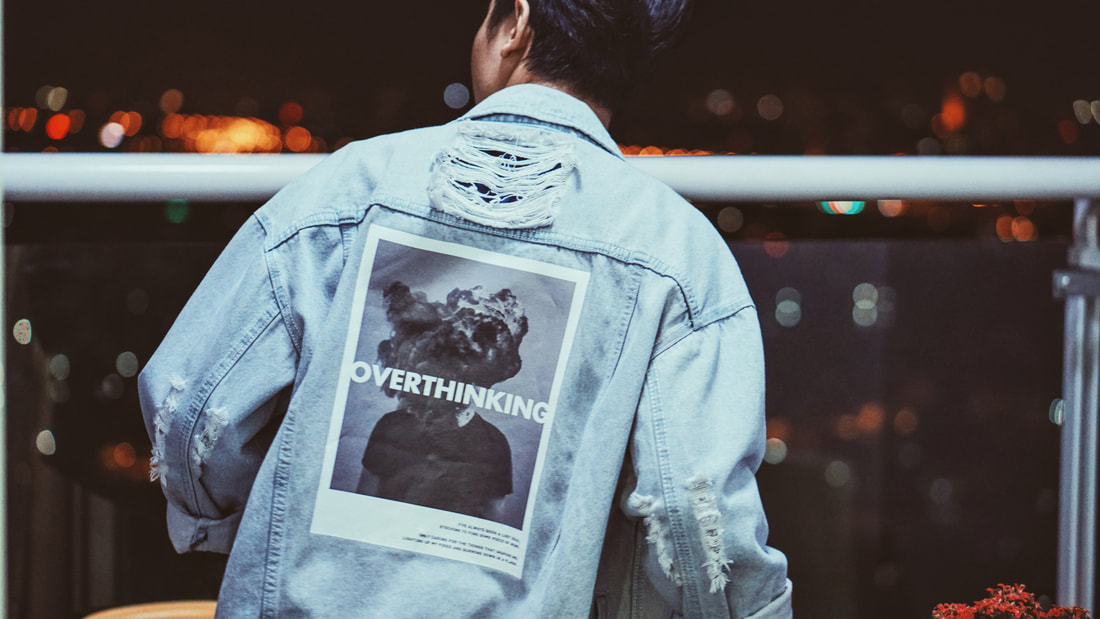
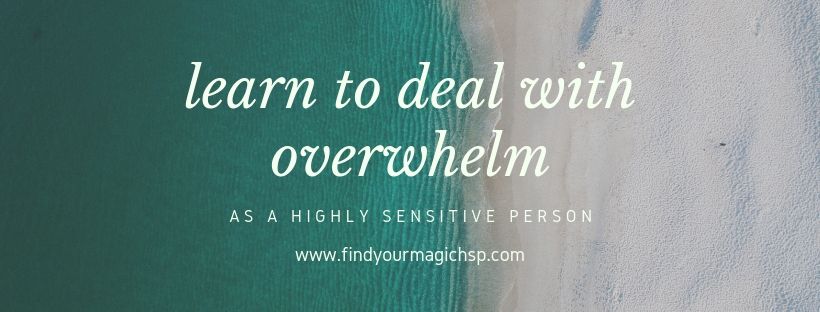
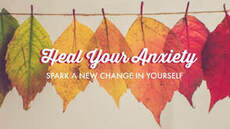
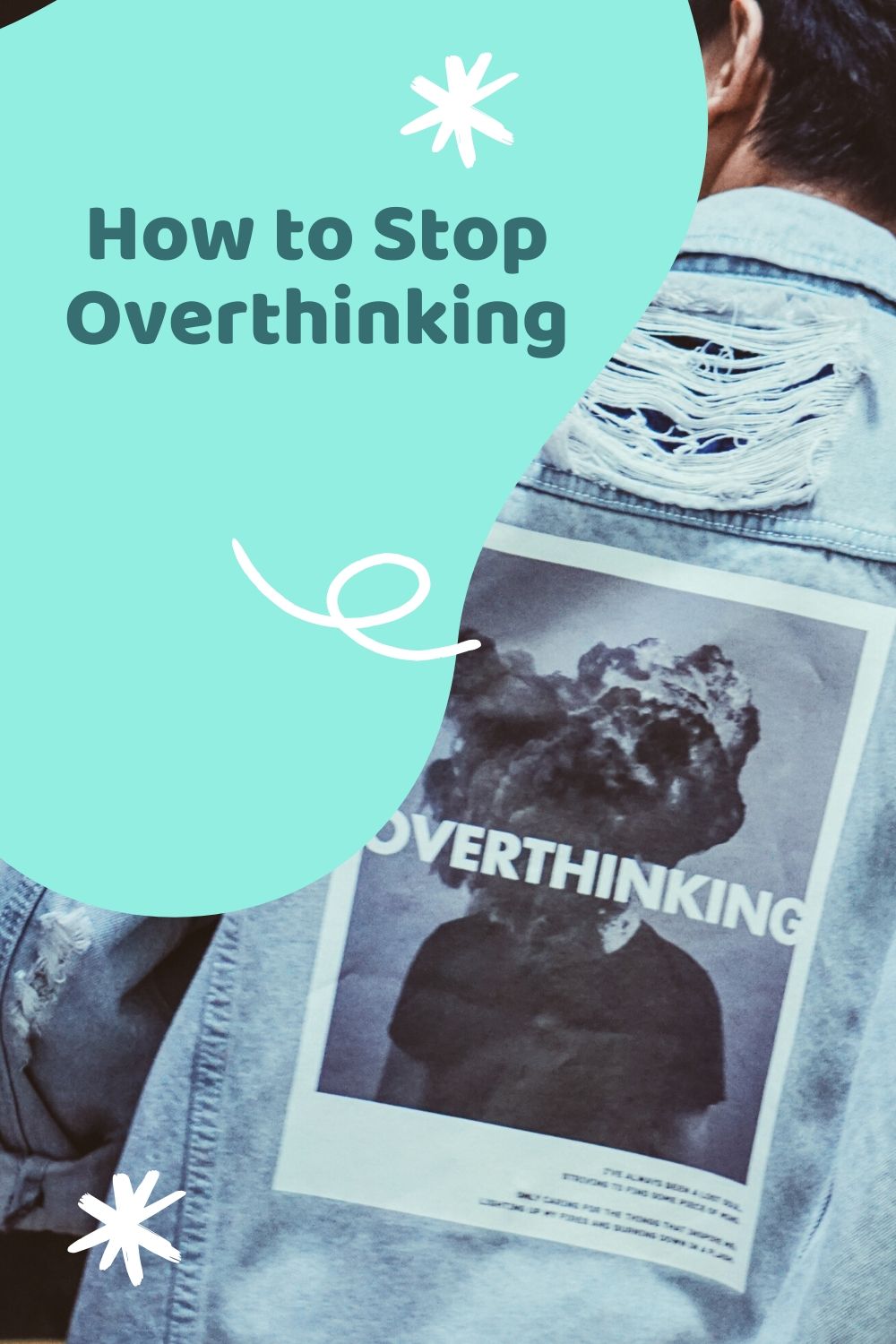

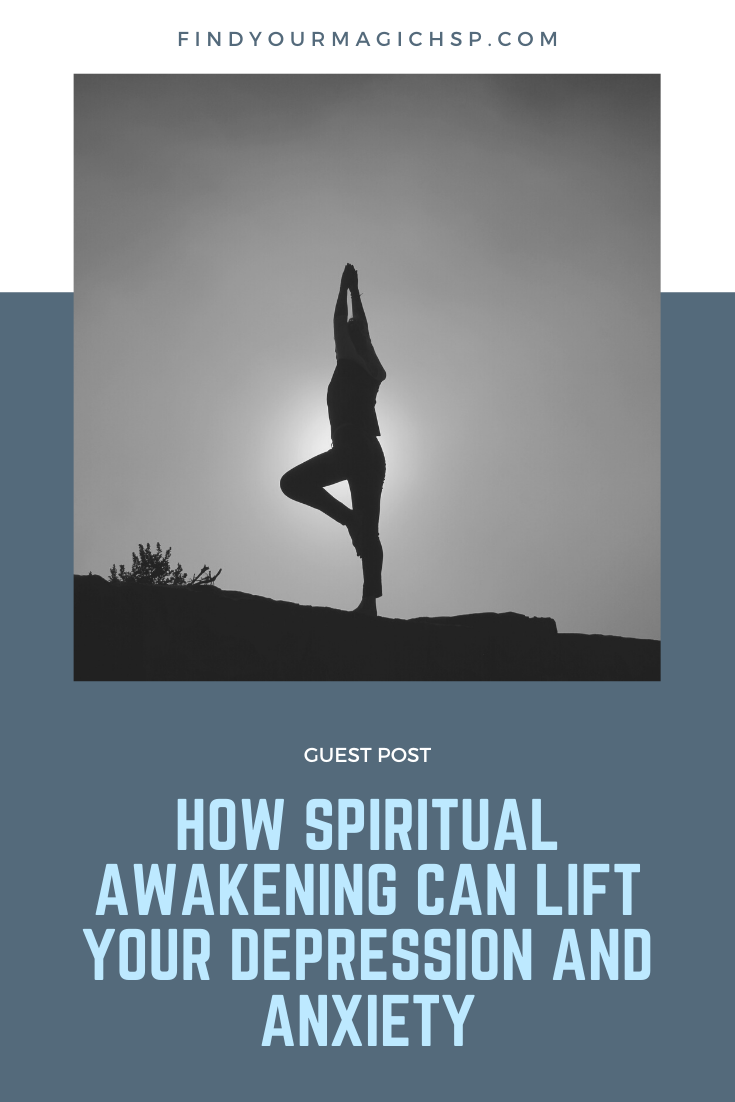
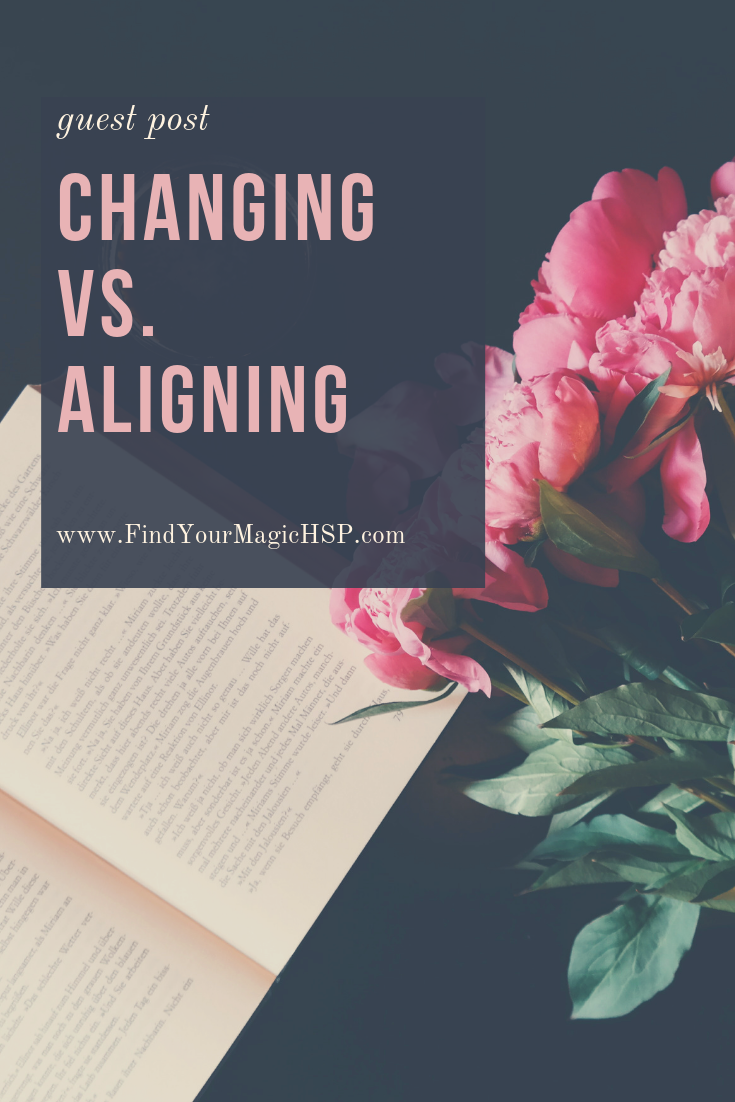

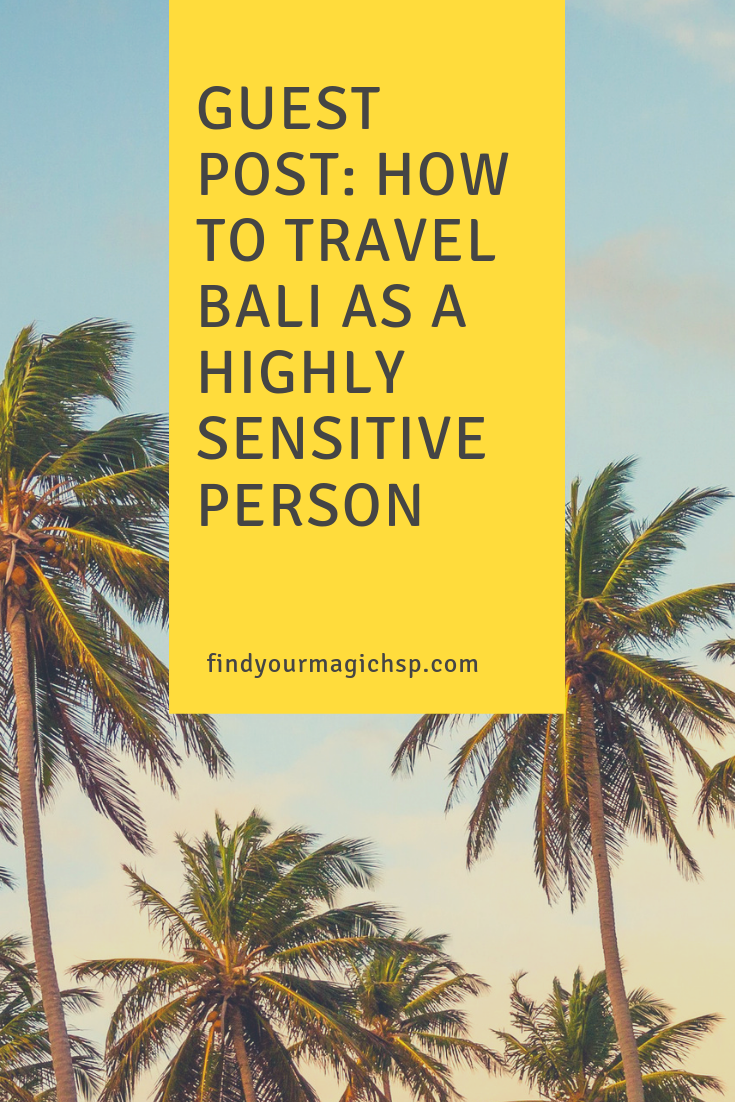
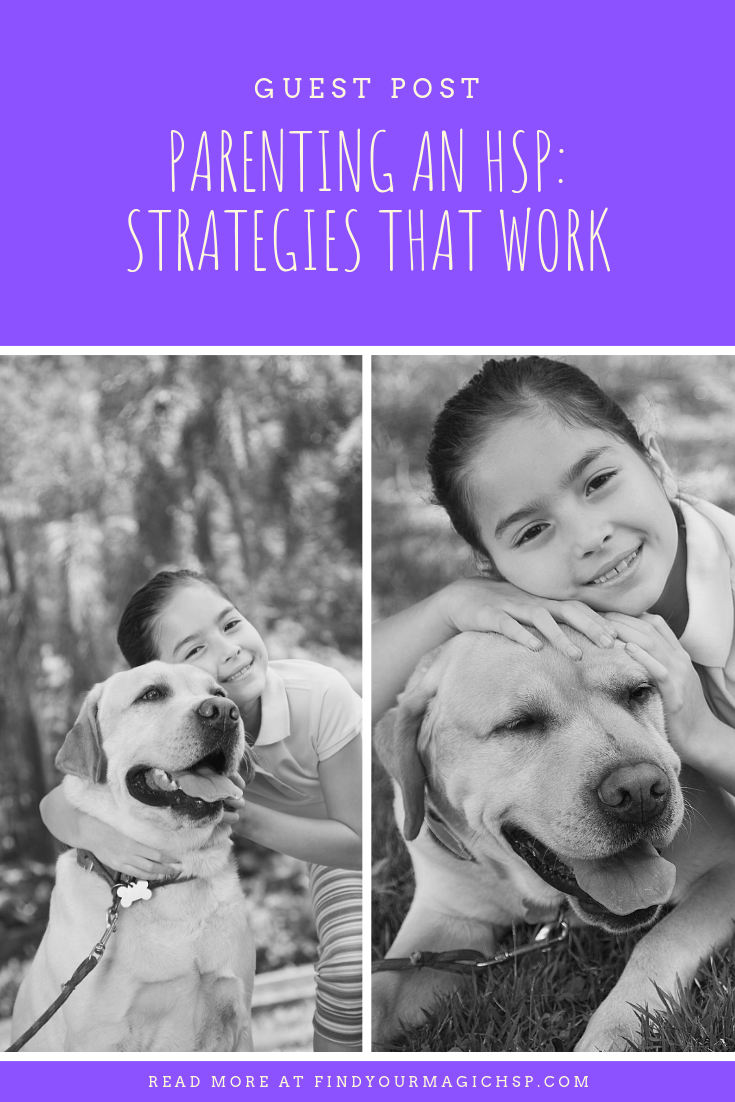


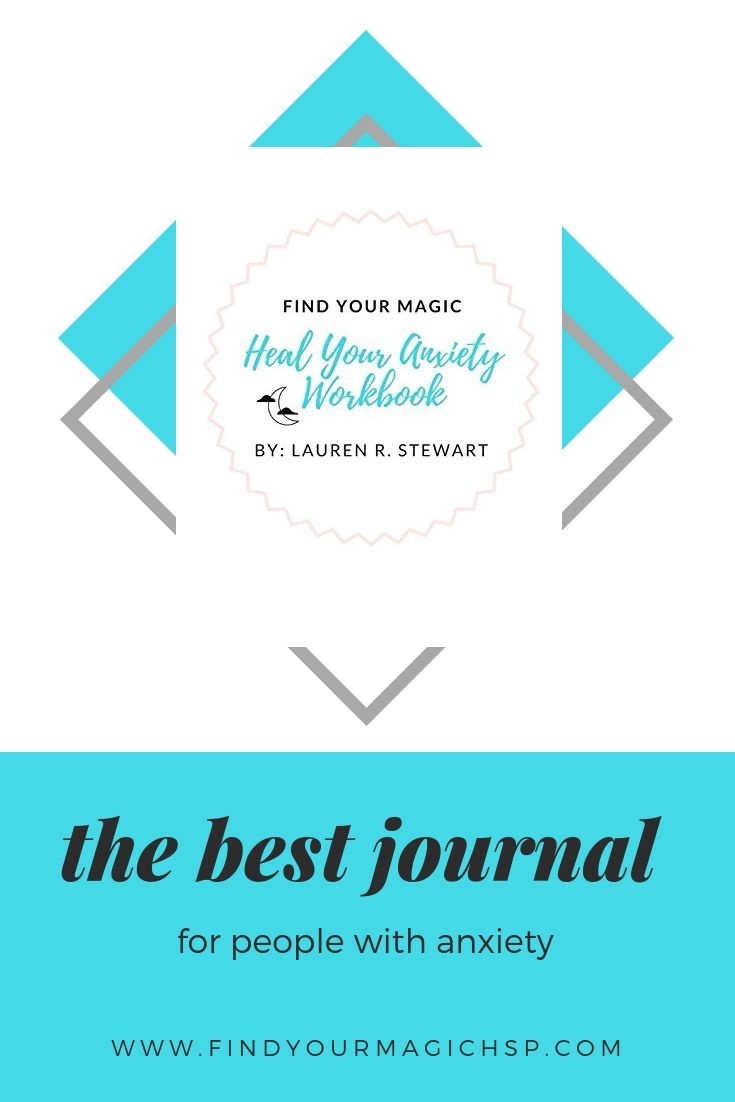
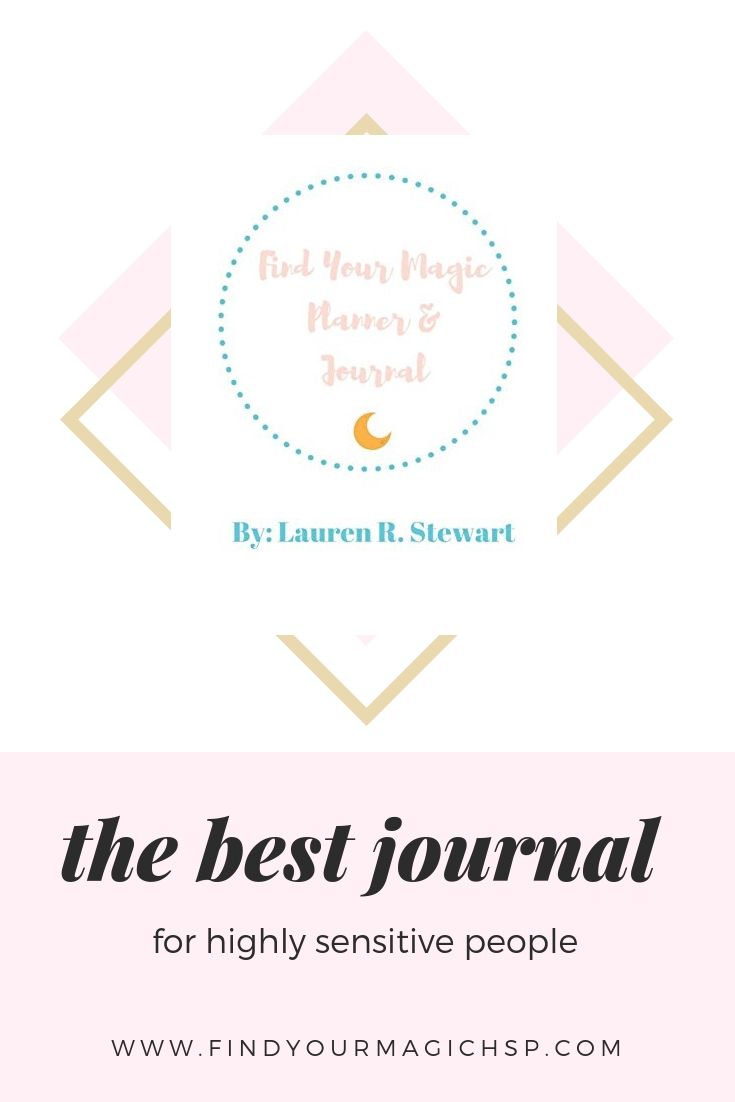
 RSS Feed
RSS Feed
